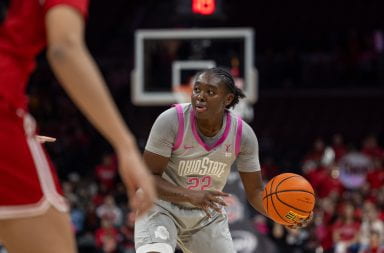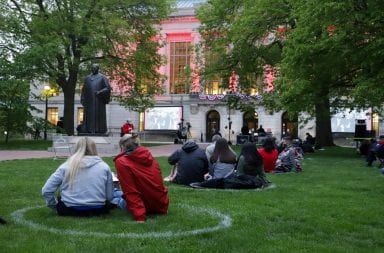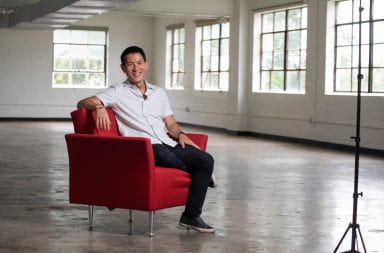Some students, including members of Undergraduate Student Government, said OSU’s new nondiscrimination policy is not inclusive enough. USG presented a proposal to the Council on Student Affairs Tuesday stating it would like to change the language of the current policy to broaden the policy’s protections.
The Council on Student Affairs serves as the principal link between student government and the faculty and administration, according to its website.
The new language would eliminate the exception made to organizations with “sincerely held religious beliefs” of its members to adopt a nondiscrimination statement that is consistent with those beliefs.
The council voted 12-2 in favor of the new proposal. The 12 that voted in favor were students and faculty. Those that voted against the proposal were Student Life staff members.
“I will be profoundly disappointed and sincerely saddened if the administration sought to utilize any legal technicalities to veto the student opinion that no student activity fee money go to organizations that discriminate,” said USG President Micah Kamrass.
If groups decide to be discriminatory in a way that is consistent with their beliefs, they can do that, Kamrass said, however USG does not want Ohio State funds to be given to those groups.
Ruth Gerstner, spokeswoman for the Office of Student Life, said Javaune Adams-Gaston, vice president for Student Life, respects the view of those who disagree with her opinion.
“She sought and received advice and consultation over several months from all who wished to present their views, and she has made the decision that she believes is in the best interest of Ohio State students,” Gerstner said.
There was much debate during the meeting from faculty, student governments, the Office of Student Life and students who came to speak their minds.
“It seems to me that it is very inconsistent to give such a carve-out to one set of organizations and not to others. We have ethnic organizations. Why shouldn’t they be able to discriminate?” said USG Senator Niraj Antani, who represents Social and Behavioral Sciences. “When it comes down to it, I think it is a matter of consistency.”
Matt Dodovich, a law student who serves on university committees on behalf of Inter-Professional Council, offered a suggestion to the council.
“If these groups do not want to use the nondiscrimination policy, they can be a non-registered student organization. They can use public university spaces, they just wouldn’t get the money,” Dodovich said. “I think there is room for us to work together to rectify that situation.”
Kamrass said the student organizations that discriminate can now tell students they cannot be a part of their organization because of the way they were born.
Before the meeting, Human Rights Campaign held a peaceful protest in the Union. Students marched in circles around each Union floor. Before entering the meeting, the protestors made a tunnel for the CSA and chanted, “Two, four, six, eight, don’t ‘effing’ discriminate.”
“I don’t believe that our student activity fee should pay for organizations that discriminate against anybody,” said Maddie Fireman, a second-year in public affairs and member of Women and Allies Rising in Resistance.
Megan Conroy, chief of staff for IPC, said the new proposal would be beneficial to student organizations with certain beliefs.
“Leadership, if elected through a democratic process, would not be endangering that group, but further perpetuating it. It would be elected in accordance with their beliefs,” Conroy said.
Kamrass concluded the discussion of the proposal before the vote was cast.
“We are asking you to do what’s right,” Kamrass said. “Organizations that receive activity fee money should not discriminate in membership or leadership.”
This article has been revised to reflect the following correction:
Correction: April 14, 2011
An earlier version of this story stated that USG Speaker of the Senate Andrew Mikac said, “It seems to me that it is very inconsistent to give such a carve-out to one set of organizations and not to others. We have ethnic organizations. Why shouldn’t they be able to discriminate? When it comes down to it, I think it is a matter of consistency.” In fact, USG Senator Niraj Antani, who represents Social and Behavioral Sciences, said that quote.
An earlier version of this story also stated that the council voted 12-1 in favor of the new proposal. In fact, the council voted 12-2.


